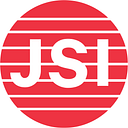Ethiopia’s Federal Ministry of Health (MOH) launched the Health Sector Transformation Plan (HSTP) I and II to address the quality and distribution of health service delivery across the country. HSTP II, which introduced the Information Revolution as part of its transformation agenda, rests on two major pillars: digitization of the health information system (HIS) and cultural transformation of the use of information at all levels of the health system.
To digitize the HIS, the MOH launched an application called the Electronic Community Health Information System (eCHIS). eCHIS digitizes existing community health manuals and service workflows and enables digital health service data reporting for use among health extension workers (HEW) across the country. HEW are a cadre of the Ethiopian health workforce which offer household-level health service delivery; each HEW serves the health needs of about 2,500 Ethiopians across the country. The eCHIS comprises tablet disbursement to HEWs, several mobile applications, and a web-based monitoring portal. It captures electronic data from the Health Extension Program (HEP) — the national backbone of Ethiopia’s community health system — and community-level services and uses this data to improve HEP performance, HEW resources, and ultimately community health outcomes.
Meseret Neguisse, 26, is a passionate Health Information Technology (HIT) expert working with eCHIS at Biyo Health Center in the Lume Woreda of the Oromia Region. Lume Woreda is an early eCHIS pilot woreda, with seven health centers and 35 health posts. Lume started implementing eCHIS in 2019.
“I was very interested in digital applications even before joining this health center as a HIT expert and it didn’t take me long to get used to the work,” says Meseret. As a HIT expert, she pulls reports from different departments into HIS and aggregates, analyzes, and monitors data. In addition, she works as an eCHIS focal person in the health center helping others use the system.
Meseret explains how eCHIS-based service delivery improves data quality, which, in turn, enables patients to receive higher-quality and comprehensive healthcare services.
“If the client is a new mother, for instance, she will get all the necessary services related to maternal and child health. The eCHIS app helps the provider counsel the mother to not miss check-ups and it alarms the health extension workers when her check-up date approaches, or if mothers have missed their appointments, so the health extension worker can follow-up early” she says.
Meseret’s colleagues echoed her statements. Many HEW assessed throughout implementation have indicated that eCHIS has helped them:
- track clients’ health information;
- set up appointments;
- track defaulters;
- produce reports; and
- generally serves as a job aid to keep up-to-date with new developments.
Meseret is one of the HIT professionals who took part in an eCHIS refresher training — ongoing trainings on app use, health counseling, and disease monitoring that are built to address HEW needs and continuously strengthen their knowledge and health delivery activities (e.g. the eCHIS app has been consistently growing in adapting manuals on various health delivery areas, such as malaria, HIV and AIDS, leprosy, and early childhood care needs). “The app is very simple to use and its accessibility in Amharic and Afaan Oromo languages in addition to English means that more people are able to learn within it,” she says.
Having mastered the eCHIS app, Meseret has mentored other HEW on its use. As a result, Biyo Health Center completed household registration, achieved 65% biometric data registration, and started service delivery with eCHIS in 2022. Currently, maternal and child health, family planning, the expanded program on immunization, and the recently added nutrition services are delivered using eCHIS. Biyo Health Center plans to start eCHIS-based TB, HIV, and malaria service delivery in the near future. Although obstacles in connectivity and power shortages are a challenge for Meseret and her colleagues, the health center’s documentation has vastly improved with digitization.
eCHIS is a five-year project that builds on the Government of Ethiopia’s efforts to leverage the power of digital technology to improve the coverage and quality of healthcare in Ethiopia. The project is implemented by JSI and is funded by the Children’s Investment Fund Foundation.
